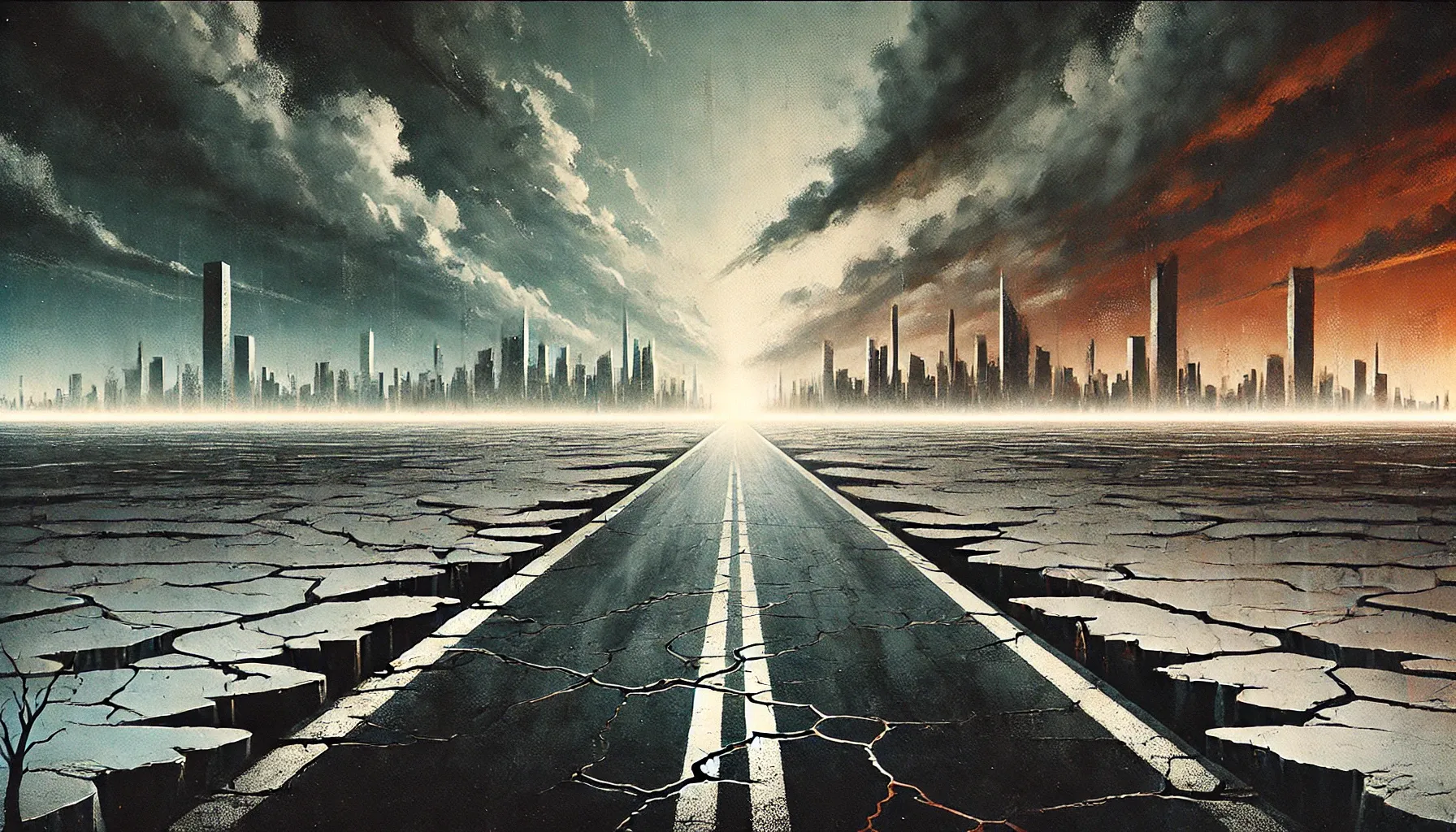Reform or Repeat - What’s Next for Society?

As I sit down to consider where society, nations, families, and each one of us is heading, I'm reminded that we're actually in a pretty good place—despite what we might feel when bombarded with news or scrolling through social media. Why do I say this? Well, for one, I'm an optimist. I believe in the good. And two, history tells us that we've come a long way. Despite our current challenges, human progress has given us unprecedented access to knowledge, healthcare, and opportunities. Yet, it doesn't always feel this way when we're caught up in the constant news feed, often dominated by scandal and disaster.
This isn't accidental. We're naturally drawn to stories that spark a sense of danger, urgency, or fear. It's an evolutionary impulse to pay attention to threats—something our ancestors relied on for survival. But now, with algorithms and media companies competing for our eyeballs and clicks, this instinct gets exploited. Our screens flood with negativity because, as consumers, we often engage with it more, encouraging platforms to push it further. Before we know it, our perspective on the world around us can start to feel skewed and discouraging. But what's the true impact here, and where are we headed?
The Information Trap and Its Effects on Us
Today, we're not just consumers of information; we're practically drowning in it, 24/7. Social media and news platforms show us an endless loop of similar stories, often curated to reinforce our fears, frustrations, or desires. As a result, society can feel more divided, hostile, and uncertain than it really is. We're constantly fed sensationalist, fear-inducing content that, while suitable for short-term engagement, drains our hope in the long run. It's a recipe for collective anxiety and frustration, especially as we try to make sense of global issues while managing our own lives.
Of course, there are other types of popular content that compete with the negative headlines: humor and wellness. Humor gives us a break from the chaos, with some of it purely for laughs and some genuinely clever. The wellness trend, on the other hand, taps into our desire for self-improvement, beauty, and fitness—reflecting our natural drive to feel good, look good, and fit in. This isn't necessarily a bad thing; after all, self-care and laughter are vital parts of well-being. But there's a downside, too. When these become competitive, it can create a sense of inadequacy or pressure. The endless comparisons and pursuit of "likes" on our profiles can lead to feeling like we're always falling short.
Stepping Back and Rethinking Our Future
All of this noise makes me wonder—what's next? Where are we as a society, and what are we becoming? Are we destined to be driven by fear, pressured by unattainable ideals, and divided by echo chambers? Or is there another path?
It's easy to feel powerless, but maybe we're just getting lazy. It's far too simple to passively absorb whatever comes across our screens and react without really thinking. We get swept along, like a herd of sheep, blindly following the day's narrative. To break free, we must step back, use our minds critically, and seek diverse perspectives and genuine expertise. We can't just let algorithms dictate our views or our lives.
The Need for Change in Society and Politics
Society and politics need major reforms on a larger scale. The issues are complex, sure, but that's no excuse for complacency. Too often, leaders and policymakers avoid tackling the real problems because they're afraid of losing votes or facing backlash. Instead, they kick the can down the road, promising change during election seasons but leaving the core issues untouched. This cycle of superficial fixes can't continue indefinitely.
Consider the economic system: Can we keep printing money and relying on debt to escape problems? Can we keep adding layers of regulation that only benefit those with access to top-notch lawyers? These are tough questions, but we can't ignore them. Massive reforms—yes, even unpopular ones—may be the only way forward. Addressing inequalities, enhancing safety, and building a sustainable financial system should be on the table. It's about time we start addressing this head-on.
Radical Solutions: Citizen's Salary and New Ideas
One solution that keeps coming up is the idea of a "citizen's salary," a universal basic income that provides everyone with a base level of financial security. Imagine if everyone had a guaranteed income to cover basic needs. It's a concept that could solve many societal problems by reducing poverty, alleviating economic stress, and even improving mental health. It would give people the freedom to pursue their dreams without the constant worry of survival. And while it's a significant change, perhaps it's worth trying on a large scale, even in select regions. After all, progress is built on doing, not just theorizing.
This approach could extend to other areas as well. Let's experiment with deregulation in specific sectors, making laws more uncomplicated and accessible to the average person. Let's test citizen salaries. Let's try new things, analyze the results, adjust where necessary, and keep moving forward. The world didn't get to where it is through endless debate—it advanced because people tried things, took risks, and learned from their mistakes. Our leaders could stand to remember this.
A Call for Optimism and Action
So, while it might sound like I'm being critical, I'm actually hopeful. I believe in our ability to adapt, change, and make things better. We're not in an ideal state, but we have the luxury of trying new approaches before things spiral out of control. By reducing our time spent on negativity and seeking out alternative views and sources, we empower ourselves to form well-rounded opinions and, ultimately, to make better choices.
The next chapter isn't set in stone. It's up to us to push for change and, above all, to keep questioning. Let's not be content with the status quo. Let's channel our frustrations, hopes, and curiosity into something meaningful. We can either be passive observers or active participants in shaping the future. The choice is ours.

